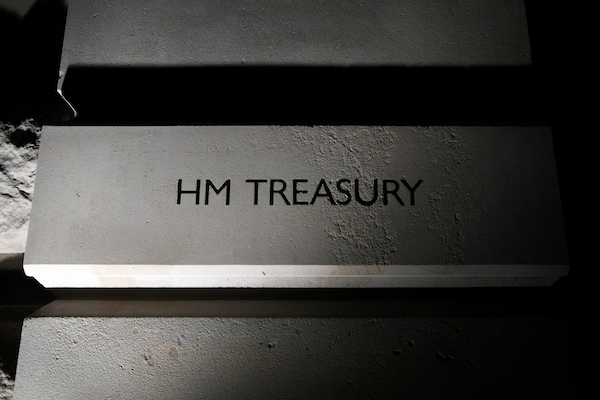In Michael Lewis’s The Big Short, one of the few Wall Street analysts to bet against the US housing market explains his decision to short Merrill Lynch:
We have a simple thesis. There is going to be a calamity, and whenever there is a calamity, Merrill is there.
Sure enough, Merrill was there when the housing market crashed. Merrill was so there, in fact, that it ceased to exist as an independent company. The smart guys weren’t as smart as they thought they were.
I think of that anecdote every time it becomes clear that HM Treasury has been interfering in affairs that are, properly speaking, none of its business. Like trains, for instance.
You and the other average man on the 8.22 to Euston might think that the decision on who should operate the West Coast Mainline franchise ought to be a matter for the Department of Transport. That would reckon without the smart guys at the Treasury, however.
It is quite evident – and universally accepted – that the Treasury has had “some influence” on the decision to award the franchise to FirstGroup rather than the existing franchise-holder, Virgin Trains. And why? Because First bid an extraordinary amount of money: some £5.5bn to run the trains until 2026.
First’s bid was so far ahead (£700m to be precise) of Virgin’s that it is hard to see how they can really hope to make a return on their investment. (Nor, incidentally, does their record with the franchises they already hold seem to have been thought worth considering. Ask Scotrail users if they’re impressed with First…)
All of which means that, unless they’re more fortunate than it’s reasonable to expect, there’s a financial calamity coming down the line. And, as always, the Treasury will be there.
This is not, of course, a new phenomenon but one wonders how many times the smart guys at the Treasury need to blunder before someone questions the wisdom of handing so much power in Whitehall to a department more pleased with its record than it has any right to be.
For all that George Osborne has seen his stock plummet in the aftermath of his calamitous budget, it should be remembered that he didn’t produce it on his own. He had an entire department working on it.
It’s only at the Treasury that it makes sense to haul an extra couple of million taxpayers into the 40% bracket. Only the Treasury can think you simplify the tax code by making it more complicated. Trimming here and adding there, shovelling fresh favours to a chosen few with one hand while calling in past presents to others with the other, the Treasury retains the belief it can manage everything. This might almost be charming if it weren’t so obviously beyond its capabilities.
And yet the department insists upon its prerogatives including, remarkably, the idea that it knows more about everything than everyone else. Even when policy is either beyond its understanding or far removed form its ostensible remit.
It has become a powerhouse, destabilising the government and threatening the very ambition it’s supposed to facilitate. Like some over-mighty medieval baron, it’s surely beyond time the Treasury was brought to heel.
One has the impression that the Treasury believes it can control everything and that nothing should leave government without having been cleared by the Treasury’s collection of boffins and whizz-kids.
Yet what has the department actually achieved in recent years? From PFI to rail privatisation to gold reserves and innumerable budget fiascos its record seems, to the layman, a pretty shabby one. And yet it remains there: the giant vampire squid, if you like, sucking away at the heart of government, bleeding every other department while being oddly free from responsibility itself.
Perhaps I’m mistaken but maintaining this kind of super-Treasury surely does not assist the cause of good or even halfway-useful government. Time, then, for its wings to be clipped and some measure of balance restored to Whitehall.







Comments